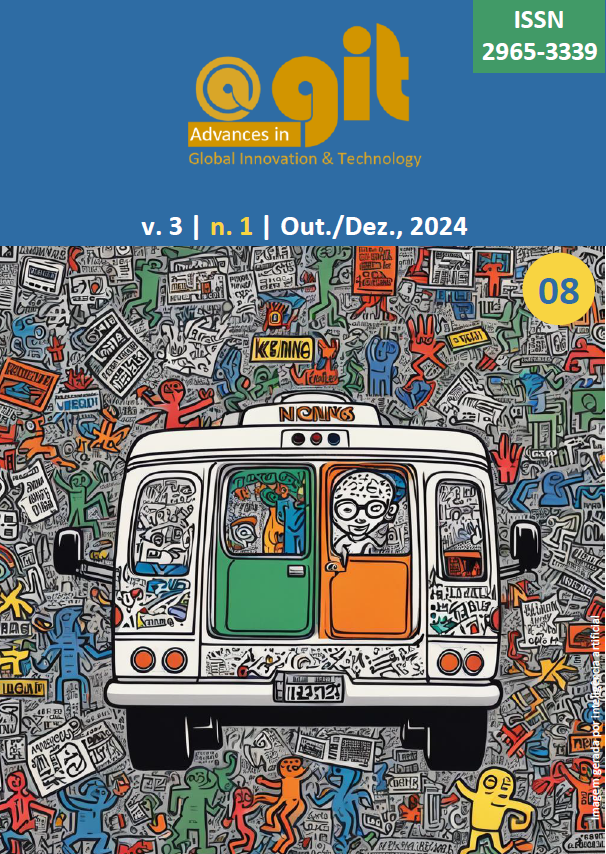The role of freight forwarding in optimizing international logistics
Challenges and Strategies for Maximizing Efficiency
DOI:
https://doi.org/10.29327/2384439.3.1-1Keywords:
Freight Forwarding, Internacional logistics, Operational efficiency, International strategyAbstract
This study aims to explore the impact of freight forwarding on optimizing international logistics, focusing on the challenges faced and strategies adopted to improve operational efficiency. The research is justified by the growing complexity of global supply chains, which demands more effective logistical solutions for multinational companies. The general objective is to analyze freight forwarding practices that enhance logistics efficiency, while specific objectives include identifying key strategies and assessing their impact on global supply chains. The methodology was qualitative, based on a literature review and case study analysis. Results indicate that load consolidation, tracking technologies, and efficient modal selection are essential for optimizing international transport. Moreover, rate and contract negotiations contribute to cost reduction. The freight forwarding plays a central role in improving logistical performance, although challenges such as third-party dependence and international regulations continue to limit overall operational efficiency.
Downloads
References
BALLOU, R. H. Gerenciamento da cadeia de suprimentos/logística empresarial. 5. ed. Porto Alegre: Bookman, 2006.
CHOPRA, S.; MEINDL, P. Supply Chain Management: Strategy, Planning, and Operation. 6. ed. Pearson, 2016.
CHRISTOPHER, M. Logística e Gerenciamento da Cadeia de Suprimentos: Estratégias para Redução de Custos e Melhoria dos Serviços. São Paulo: Cengage Learning, 2011.
CHRISTOPHER, M. Logistics & Supply Chain Management. 5. ed. Pearson, 2016.
COYLE, J. J., Langley, C. J., Gibson, B. J., Novack, R. A., & Bardi, E. J. (2016). Supply Chain Management: A Logistics Perspective. 9th ed. Cengage Learning.
Danuello, J. C.; Amadei, J. R. P.; Ferraz, V. C. T. ABNT NBR 6023:2018 - Guia para elaboração de referências. Bauru, SP: Serviço de Biblioteca e Documentação, USP, Out. 2023. Disponível em: https://usp.br/sddarquivos/arquivos/abnt6023.pdf. Acesso em: 10 mar. 2024.
HUMMELS, D. (2001). "Time as a Trade Barrier." Global Economy Journal, 1(3), 1-18.
LA LONDE, B. J., & Masters, J. M. (1994). Emerging Logistics Strategies: Blueprints for the Next Century. International Journal of Physical Distribution & Logistics Management, 24(1), 35-47.
MANGAN, J., Lalwani, C., Gardner, B., & Butcher, T. (2016). Global Logistics and Supply Chain Management. 3rd ed. Wiley.
MCLINDEN, G., Fanta, E., Widdowson, D., & Doyle, T. (2011). "Border Management Modernization." World Bank Publications.
MENTZER, J. T., Min, S., & Bobbitt, L. M. (2001). "Toward a Unified Theory of Supply Chain Management." Journal of Business Logistics, 22(2), 17-46.
WANG, G.; GUNASEKARAN, A.; NGAI, E. W. T.; PAPADOPOULOS, T. Big data analytics in logistics and supply chain management: Certain investigations for research and applications. International Journal of Production Economics, v. 205, p. 177-190, 2019.
Published
How to Cite
Issue
Section
License
Copyright (c) 2024 Tiffany Sayuri Moriwaki Ballonje, Giovanna Mendes Maciel, Ali Antonio Abrão Junior

This work is licensed under a Creative Commons Attribution-NonCommercial-ShareAlike 4.0 International License.
Copyright Policy
By submitting a manuscript for publication in the journal Advances in Global Innovation & Technology (@_GIT), authors agree, in advance and unrestrictedly, to the following terms:
- The authors retain the copyright and grant to the Journal Advances in Global Innovation & Technology (@_GIT) the right of first publication of the manuscript, without any financial burden, and waive any other remuneration for its publication in the Journal of Advances in Global Innovation & Technology (@_GIT).
- Upon submission to the Journal of Advances in Global Innovation & Technology (@_GIT), the manuscript is automatically licensed under the Creative Commons Attribution License, which allows the sharing of the work with acknowledgment of authorship and initial publication in the Journal Advances in Global Innovation & Technology (@_GIT).
- Authors are authorized to enter into additional contracts separately, for non-exclusive distribution of the version of the work published in the Journal Advances in Global Innovation & Technology (@_GIT) (publish in repositories or as a book chapter), with acknowledgment of the initial publication in the Journal Advances in Global Innovation & Technology (@_GIT), provided that such agreement does not imply an endorsement of the content of the manuscript or the new vehicle by the Journal of Advances in Global Innovation & Technology (@_GIT).
- Authors are allowed and encouraged to publish and distribute their work online, in institutional repositories, for example after the editorial process is completed.
- The authors warrant that they have obtained proper permission from their employers for the transfer of rights under this agreement, if those employers own any copyright in the manuscript. In addition, the authors assume any and all responsibility for possible copyright infringements of these employers, exempting Advances in Global Innovation & Technology (@_GIT) from any and all liability in this regard.
- The authors assume all responsibility for the content of the work, including the due and necessary authorizations for the disclosure of data collected and results obtained, exempting the Journal of Advances in Global Innovation & Technology (@_GIT) from any and all liability in this regard.













